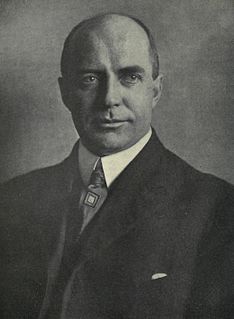A Quote by W. I. Thomas
If a person perceives a situation as real, it is real in its consequences.
Quote Topics
Related Quotes
I started realizing that one of the great things about opera is that if you make the right kind of story, you can still have this kind of abstract subliminal quality to take you on a journey, but you can root it just enough in a particular situation, a particular kind of real situation that a person might have, or a particular context in the real world.
I did this movie right after it about the life of Chet Baker. It's called Born to Be Blue. In that situation, there's a real clear character you're drawing on. It's a real person. It's really exciting and interesting to do the research to figure out how to make that a nuanced, three-dimensional human being.
We can teach a good, formal lesson on forgiveness as a Christian virtue and all the doctrines that are attached to it. But to be in a real-life situation, a work camp or a trip or some other activity with young people where real forgiveness needs to happen, that's a different situation altogether. And that is where the deepest learning will occur.





































